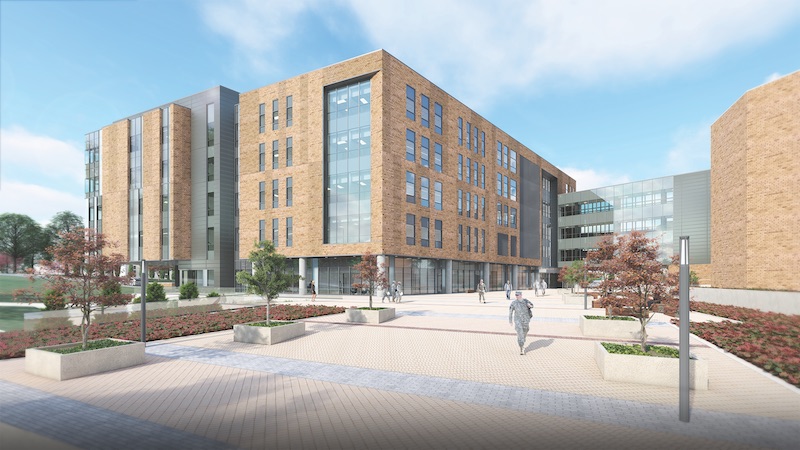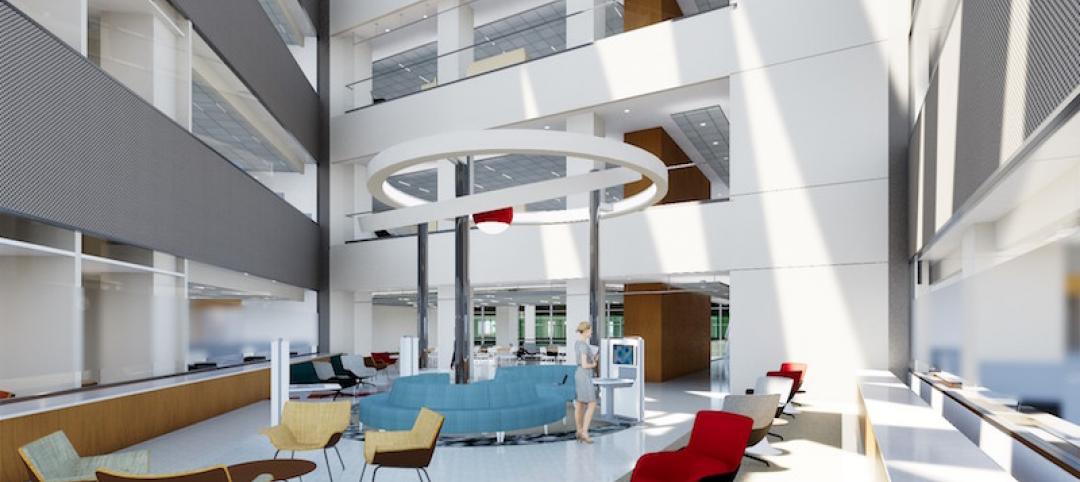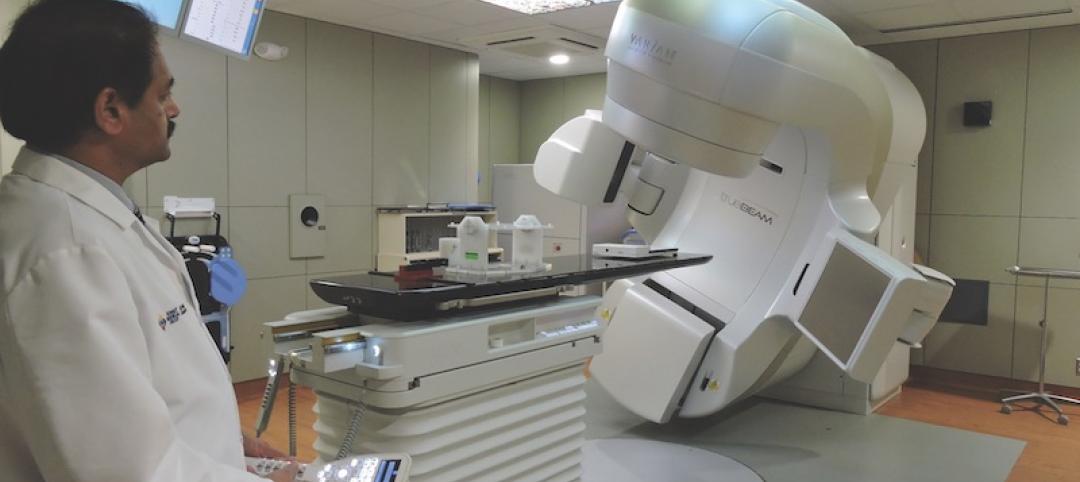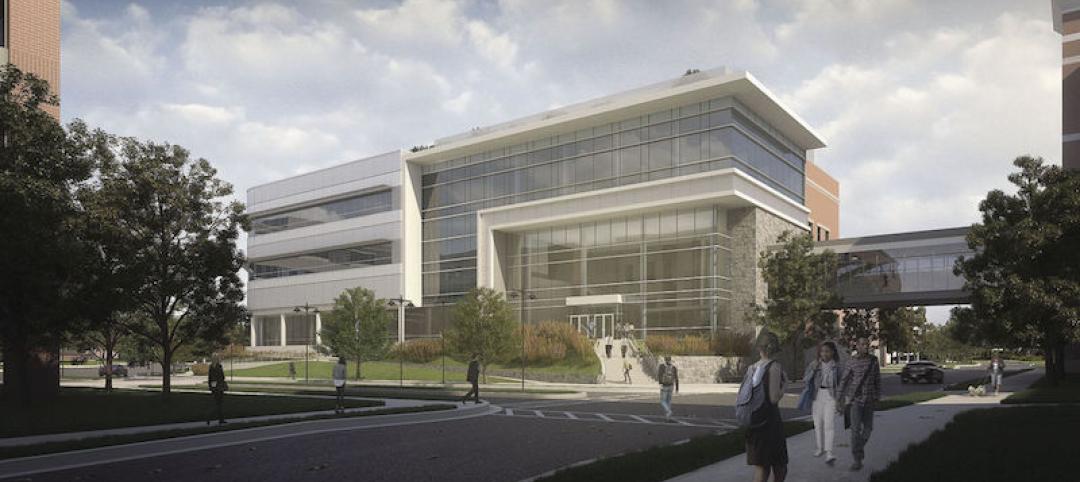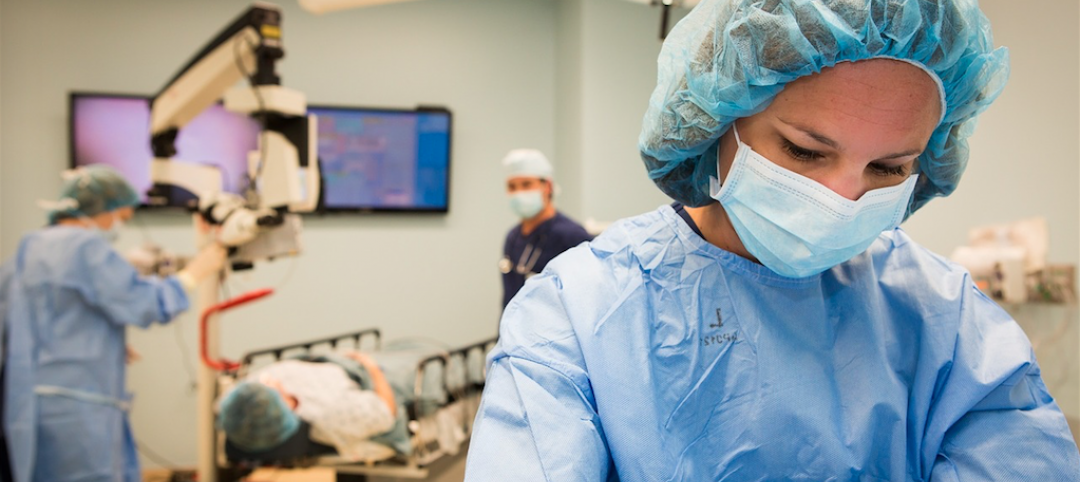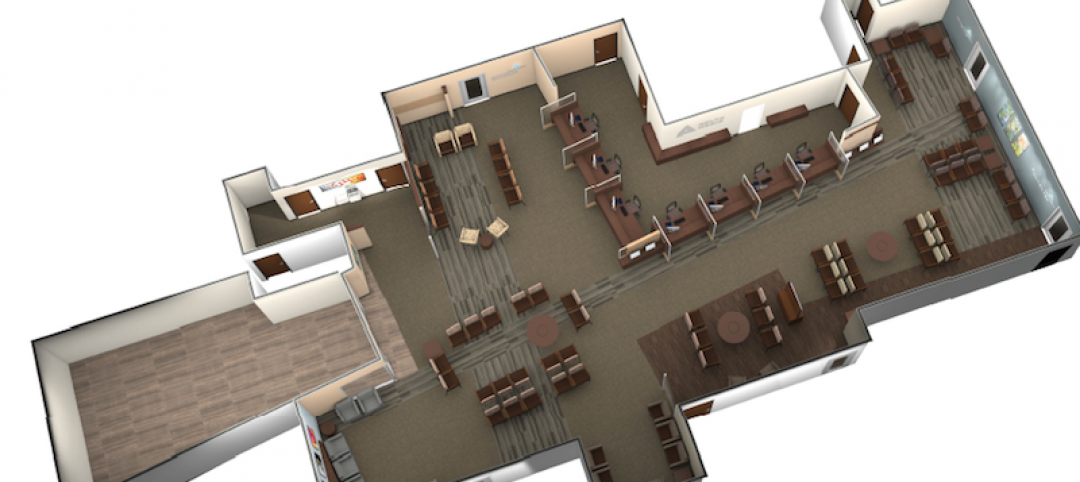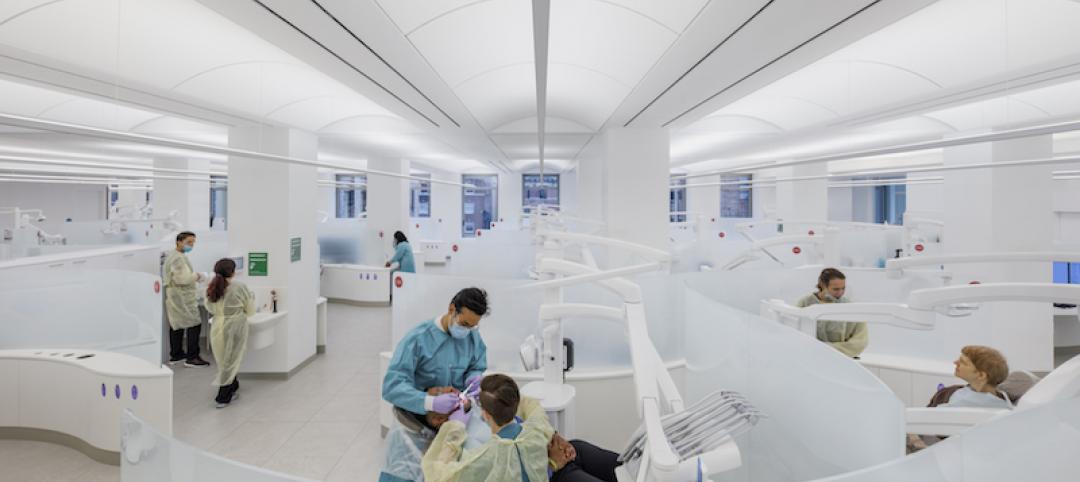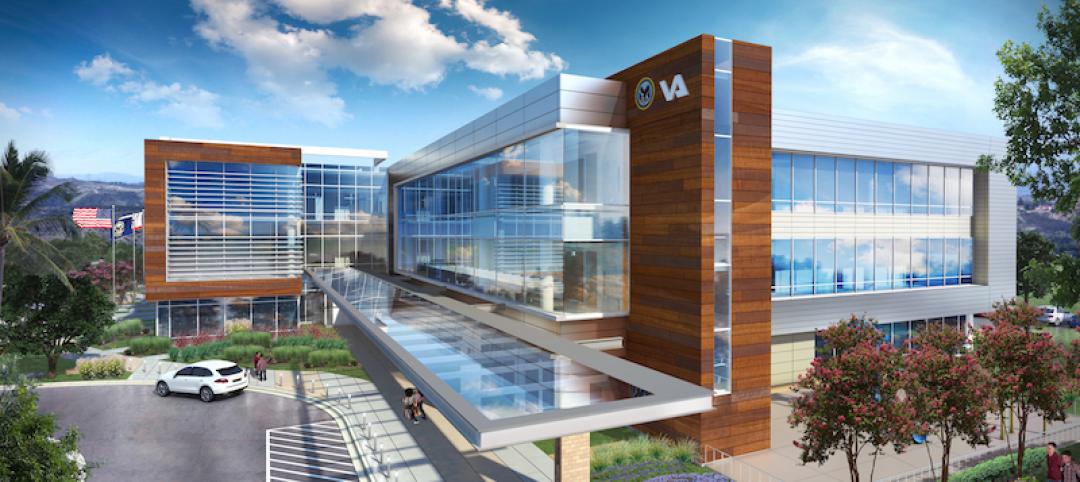Last spring, the U.S. Navy Facilities Engineering Command (NAVFAC) awarded a five-year, $50 million architect-engineering services contract to a joint venture between WSP USA and HKS for the Command’s medical facilities projects around the world.
This so-called indefinite delivery/indefinite quantity (IDIQ) contract covers hospitals, dental clinics, medical clinics, veterinary clinics, laboratories, sustainment/restoration/modernization projects, military construction projects, and medical studies.
The contract is not exclusive to the two firms, but it lets NAVFAC assign certain projects to them. NAVFAC selected seven projects under this contract for 2018, including a 477,000-sf, $298 million health, education, and research facility for the Uniformed Services University at Walter Reed National Military Medical Center in Bethesda, Md.; and a 44,000-sf medical and dental clinic in Jacksonville, N.C. There’s also a renovation component, plus four research studies that will help define future projects.
See Also: N.Y. builder pushes to get military trauma centers up and running quicker
WSP, which has been active in the healthcare sector for a quarter century, decided to compete for this contract after noticing that the AE presence in the government sector was “not as strong” as in other sectors, says Nolan Rome, PE, U.S. Healthcare Director for WSP’s Dallas office.
Rome says that he had seen IDIQ-type contracts in the past and thought that a combination with an architecture firm might work for both companies and the client. Over the previous seven years, WSP and HKS had collaborated on 42 healthcare projects for the military and private sector.
“We promised a one-stop shop for whatever the government would need, and they perceived us as something new and different,” says Jim Whitaker, AIA, DBIA, Principal and SVP with HKS. “Now, we’re the Navy’s go-to task-order vendor.”
NAVFAC follows a Uniform Facilities Criteria that touches on everything from design to scheduling. It also leans toward design-bid-build delivery, whereas the U.S. Army Corps of Engineers and the Veterans Health Administration prefer design-build. (Rome says WSP will self-perform 98% of the work under the NAVFAC contract.)
Each agency imposes spending limits, notably a 6% cap on total cost design services. “We’ve responded to those parameters with an integrated design approach,” says Alan Davis, Vice President for WSP’s Built Ecology, a national practice based on integration between architect and engineer.
Whitaker says that having a predetermined cost structure and pre-existing relationship can “make procurement easier.”
HKS and WSP have been talking with other government agencies about setting up similar contractual arrangements.
Related Stories
Healthcare Facilities | Feb 21, 2018
New $412 million advanced research center hopes to attract scientists and clinicians in pediatric biomedical research
The Crump Firm is designing the project.
Healthcare Facilities | Feb 16, 2018
Cancer centers' 'one-stop shop'
Healthcare systems ask their AEC partners for design flexibility that is adjustable to advances in medicine and technology.
Healthcare Facilities | Feb 14, 2018
Satellite centers keep cancer treatment closer to patients' orbit
This treatment center is half new construction, half renovation of a building that had been used for family services.
Healthcare Facilities | Feb 1, 2018
Early supplier engagement provides exceptional project outcomes
Efficient supply chains enable companies to be more competitive in the marketplace.
Healthcare Facilities | Jan 30, 2018
Buffett, Bezos, Dimon partner to tackle the U.S. healthcare system
The three mega companies—Amazon, Berkshire Hathaway, and JPMorgan Chase—will pursue the formation of an independent company that is “free from profit-making incentives and constraints” when it comes to U.S. employee healthcare.
Healthcare Facilities | Jan 29, 2018
The new Virginia Tech Biomedical Research Addition will include research facilities in five thematic areas
The project is a collaboration between Carilion Clinic and Virginia Tech.
Healthcare Facilities | Jan 10, 2018
Healthcare market year in review for 2017
While we have not fully turned the corner on healthcare reform and in particular healthcare payment reform, 2017 confirmed trends of consumerism and the need for more proximate low-cost options.
Retail Centers | Jan 9, 2018
The addition of a medical practice is part of the cure for reviving a shopping mall in Scranton, Pa.
Delta Medix is one of several tenants that are changing the image of the Marketplace at Steamtown.
Healthcare Facilities | Jan 6, 2018
A new precision dental center embodies Columbia University’s latest direction for oral medicine education
The facility, which nests at “the core” of the university’s Medical Center, relies heavily on technology and big data.
Healthcare Facilities | Dec 19, 2017
‘Healing Oasis’ will provide healthcare services to veterans in northern California
Hoefer Wysocki designed the $40 million facility.


